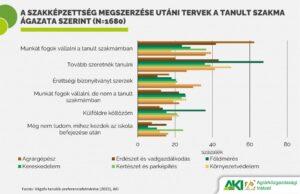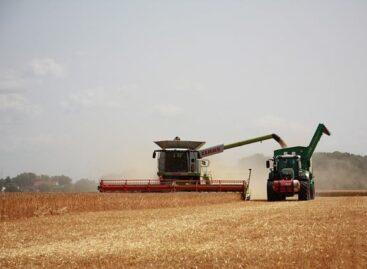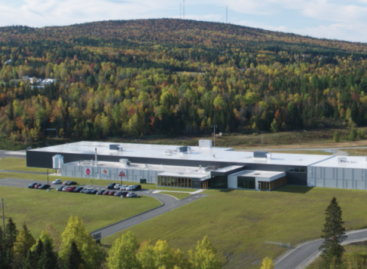42 percent of students in agricultural vocational training want to find a job in the profession
In the framework of the cooperation of the National Chamber of Agrarian Economy, the Ministry of Agriculture, and the Agrárközgazdasági Intézet Nonprofit Kft., a career preference survey was conducted in November 2022 among final-year students studying in agricultural vocational training in order to establish policy interventions that effectively help encourage them to stay in their careers.

According to the results of the career preference survey, the most positively evaluated dimension of the training environment provided by agricultural vocational training institutions is the preparation of the theoretical and practical instructors. In addition, well-organized community life is a positively evaluated area. Among the dimensions examined in the survey, the most critical opinion was expressed by the students in relation to the provision of teaching aids, the equipment of specialist classrooms and dual training places. Food industry students are the most satisfied in almost all areas. Experienced practical instructors were rated the least good by students in the agricultural engineering and agriculture sectors. According to the evaluation of the students who are about to graduate, the studies spent in the agricultural vocational training mostly contribute to the development of the students’ knowledge and skills in the following areas: ability to work independently; adaptability, practical skills; work ethic, perseverance; cooperation skills. According to the results of the survey, the vast majority of graduating students (76.1 percent) obtained their professional experience at the practical training site of their vocational training institution (training facility/training farm/training room), and this is a significantly higher proportion compared to the results of the 2020 survey (66.3 percent). Acquiring an internship at an external practical training site is most common in the agricultural machinery and food industry sectors. It is significant that only 30 percent of the graduate students who gained experience in agricultural vocational training assessed that the practical training fully facilitated and established their practical knowledge acquisition. Looking at the individual professions, students of professions belonging to the land surveying and food industry sectors were the most satisfied with the professional practice realized within the framework of the agricultural vocational training.
After obtaining the vocational qualification, 42 percent of the students who are about to graduate plan to find employment in the profession
However, one fifth of the students imagine their future outside of their field of study after obtaining their qualification. The proportion of those planning further education is 35 percent, the majority planning higher education studies in a field related to the profession they are currently studying. Students who are still uncertain about the future (13.9 percent), who at the time of the survey did not yet have a concrete vision for the period after obtaining their qualification, may form a priority group of policy interventions to encourage them to stay on track. About 44.2 percent of the responding graduate students did not have a specific job offer during the data collection period. According to the results of the survey, direct, personal relationships play a key role in the job search. According to the results of the survey, employment after graduation is expected to expand the offer of the local labor market, as most of the students with a specific job offer plan to work in their place of residence or in its immediate vicinity.
Students’ salary expectations are related to the field of study and the level of education
Based on the field of expertise, the highest wage demand is for those studying land surveying, but students in the agricultural, horticultural and agricultural machinery sectors also indicated a higher than average wage. In relation to their future workplace, the students consider useful work, a good community, and a calm and pleasant working environment to be of particular importance in addition to adequate earnings.
AKI PÁIR
Related news
The net sales revenue of all groups of ornamental plants increased in 2023
In 2023, according to data received as part of the…
Read more >Agrometeorology: summer crops would need a lot of rainfall
The summer harvest crops would need the most precipitation during…
Read more >Related news
Valeo Foods Completes Acquisition Of Appalaches Nature
Valeo Foods Group has completed the acquisition of Appalaches Nature,…
Read more >Carrefour grows in France and Brazil, lags behind in rest of Europe
Carrefour says it is rather pleased with its financial results…
Read more >Food and beverage innovation plunges nearly 50% since 2007: Mintel
The market research firm said about a quarter of items…
Read more >








